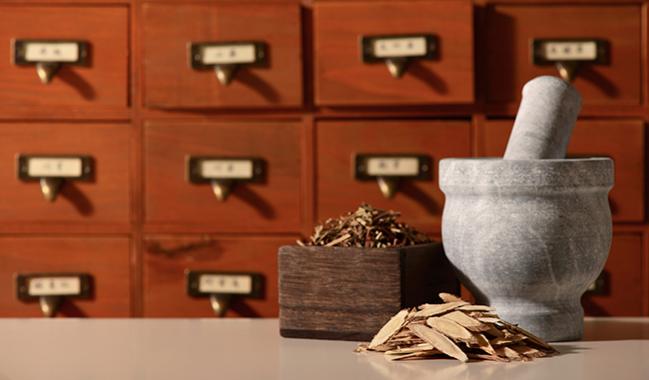Traditional Chinese Medicine May Aid in Prevention of Cardiovascular Disease
While the review suggests a potential benefit, one expert believes the majority of data is weak and difficult to interpret.

Some herbal formulations used in traditional Chinese medicine may be useful as complementary or alternative therapy for cardiovascular disease, according to a new review showing that several agents have strong antioxidant and anti-inflammatory properties, as well as good safety profiles.
“Current evidence from RCTs indicates that some [traditional Chinese medicine] medications might be effective in control of cardiovascular risk factors, such as hypertension, dyslipidemia, and diabetes/prediabetes, and exert beneficial effects on [atherosclerotic cardiovascular disease] and chronic heart failure,” write Panpan Hao, MD, PhD (Shandong University Qilu Hospital, Shandong, China), and colleagues.
For one expert, though, the data supporting the cardiovascular benefits of these herbal formulations remains subpar, making conclusions and clinical implications difficult to interpret.
Richard Ko, PharmD, PhD (HerbalSynergy, Oakland, CA), a former research scientist for the California Department of Health Care Services and currently a consultant specializing in food and drug regulations, told TCTMD that while the review suggests traditional Chinese medicine “can have some positive effects for certain types of diseases,” much of the evidence in the form of the RCTs is weak and impossible to compare with Western medicine RCTs.
There is a very desperate need for well-designed clinical trials, and while the authors tried to eliminate weaker studies, “this paper also shows how difficult it is to evaluate trial results of botanical products in general,” said Ko. “That’s not unique to China. Doing clinical trials with botanical products creates many challenges that you do not find with pharmaceuticals that have single ingredients or are highly characterized [in their mechanism of action].”
BP, Lipids, and Diabetes
For the state-of-the-art review, published in the June 20, 2017, issue of the Journal of the American College of Cardiology, the study authors examined 56 randomized, controlled trials published since 2006 in which traditional Chinese medicine was used in patients with CVD.
Among the findings:
- Jiangzhi tongluo, Salvia miltiorrhiza and Pueraria lobata roots and Zhibitai (a naturally occurring statin) appear to have potent lipid-lowering effects;
- Tiankuijiangya, Zhongfujiangya, Qiqilian, Jiang Ya, and Jiang Ya Bao have certain antihypertensive properties;
- Xiao Ke, Tang-Min-Ling, Jin Lida, and Jian Yu Tang Kang exert a potent therapeutic effect on glycemic control and/or beta-cell function in patients with type 2 diabetes, while Tangzhiping and Tianqi (pseudoginseng root) show promise for preventing progression of prediabetes to diabetes;
- Xuezhikang (extract of cholestin) might aid in reducing cardiovascular events after MI;
- Qili Qiangxin, Nuanxin, Shencaotongmai, and Yangxin Kang, are thought to improve cardiac remodeling and function in patients with chronic heart failure.
According to Hao and colleagues, more than 70% of Chinese patients who have experienced Western medicine prefer an integrative approach that combines both traditional Chinese medicine and Western medicine.
But as the study authors note, despite being used for thousands of years, traditional Chinese medicine often consists of “dozens of ingredients with innumerous chemical molecules, making it difficult, if not impossible, to elucidate the therapeutic mechanism” by which they are effective. Unlike Western pharmaceuticals, Chinese herbals and other formulations also do not undergo a rigorous approval process, making their safety and efficacy—as well as their uniformity of preparation—uncertain.
“Of note, one should bear in mind that [traditional Chinese medicine] medications are usually prescribed as complex formulae, which are often further manipulated by the practitioner on a personalized basis,” Hao and colleagues write, adding that the active ingredients isolated from these herbs often target multiple molecules or pathways.
Ko said better designed clinical trials of Chinese medicines are doable, but noted that they come with steep learning curves and must adhere to strict standardization in order to be on par with Western medicine RCTs.
L.A. McKeown is a Senior Medical Journalist for TCTMD, the Section Editor of CV Team Forum, and Senior Medical…
Read Full BioSources
Hao P, Jiang F, Chang J, et al. Traditional Chinese medicine for cardiovascular disease: evidence and potential mechanisms. _ J Am Coll Cardiol._ 2017;69:2952-2966.
Disclosures
- Hao reports no relevant conflicts of interest.
- Ko reports consulting for food and drug companies.


Christine Hubbard